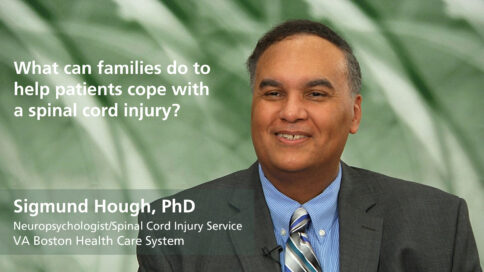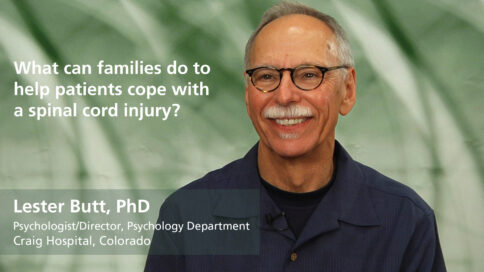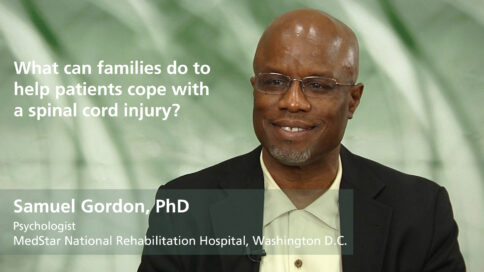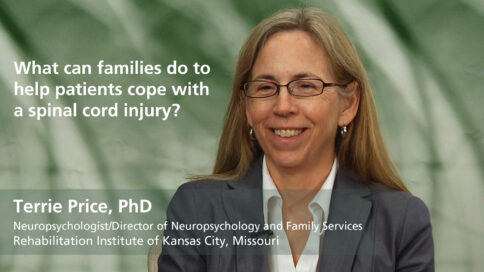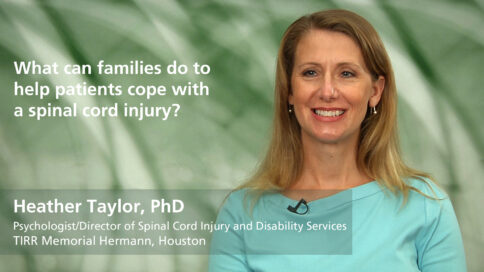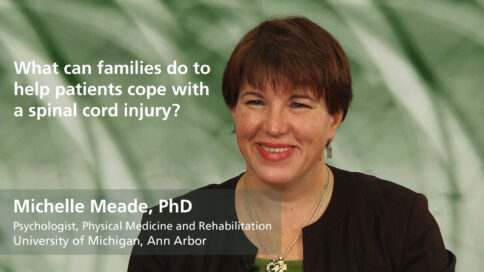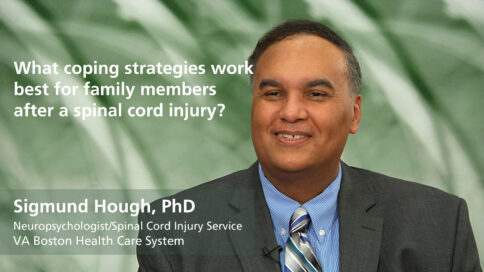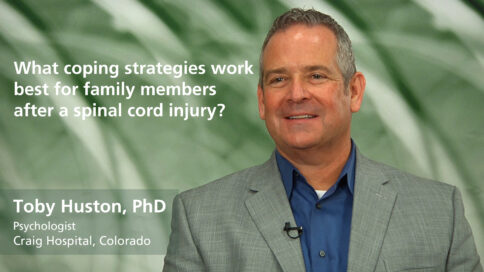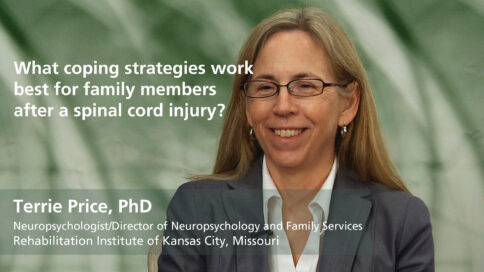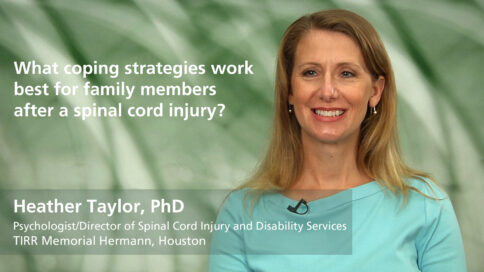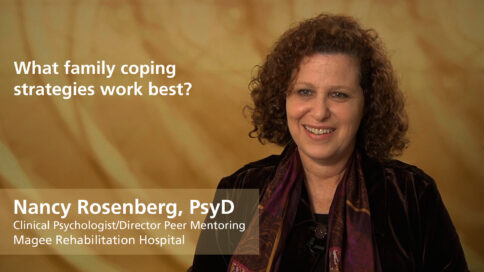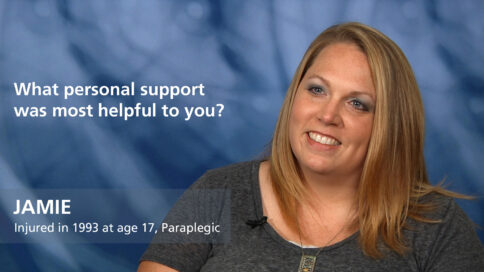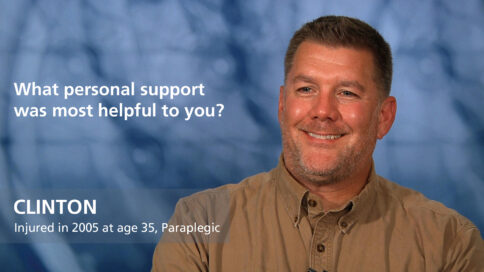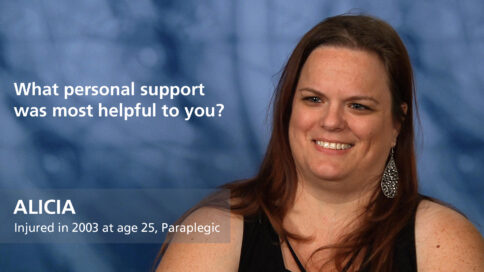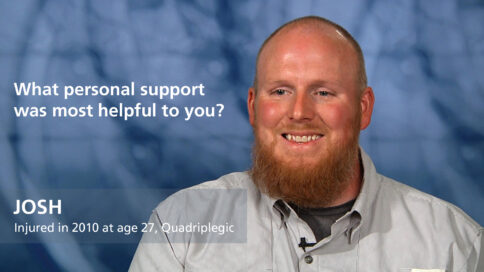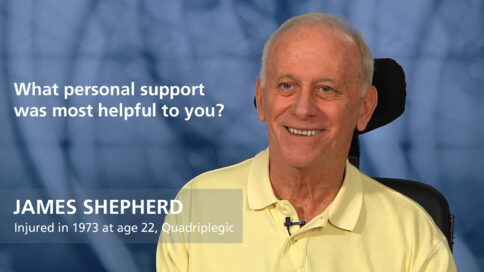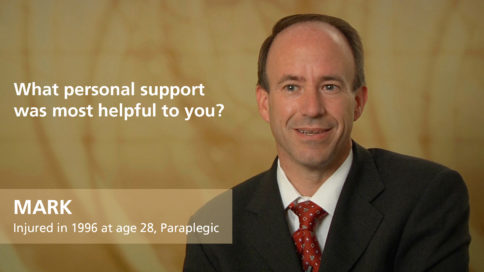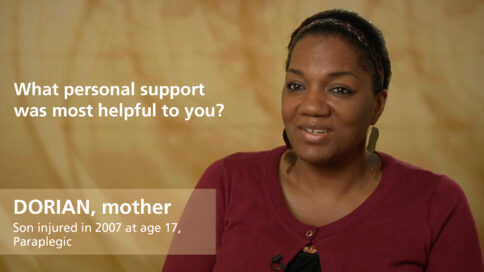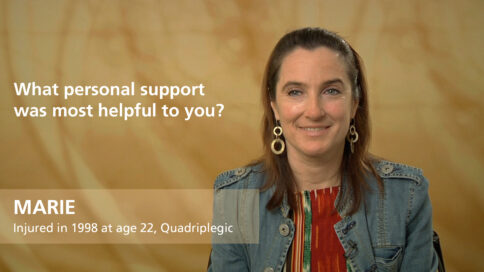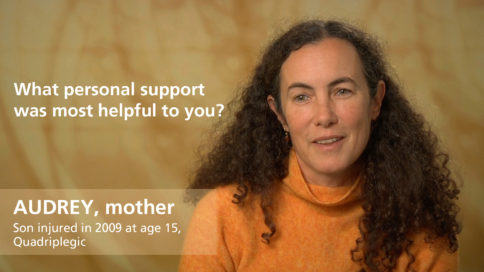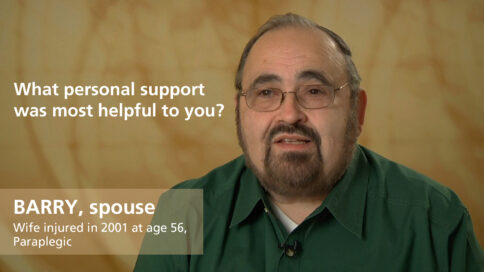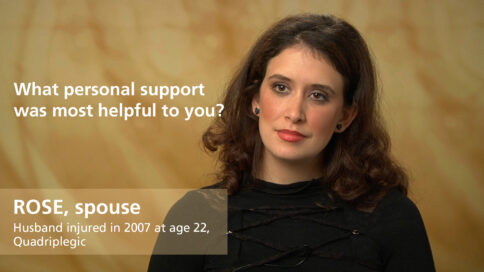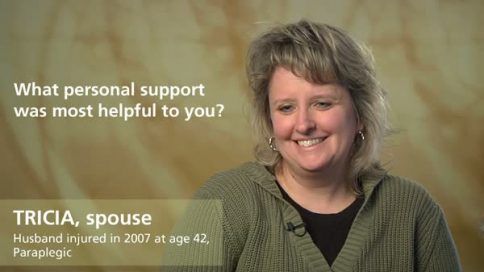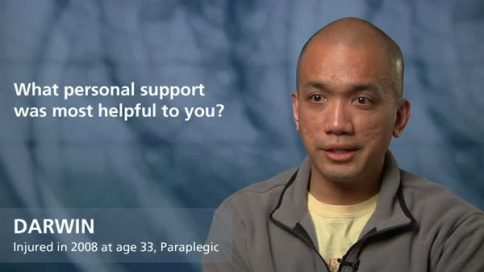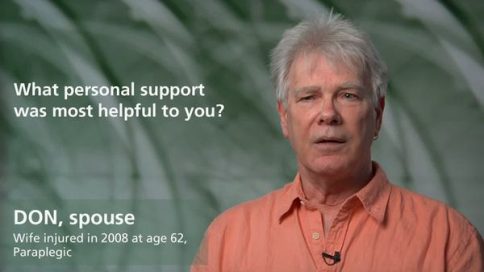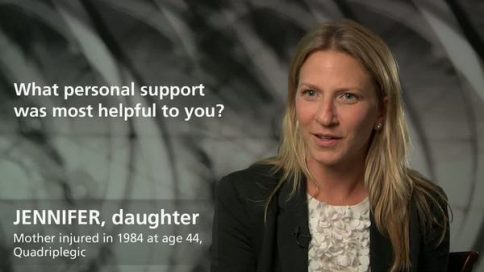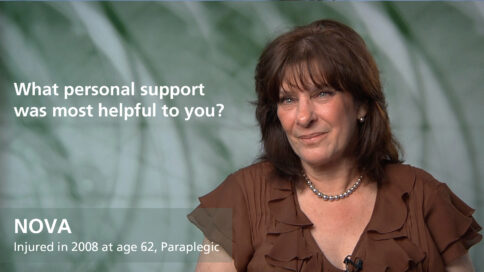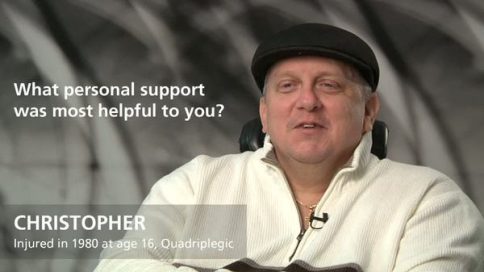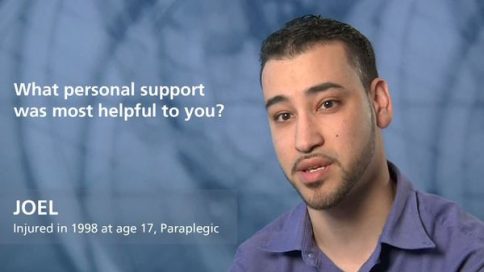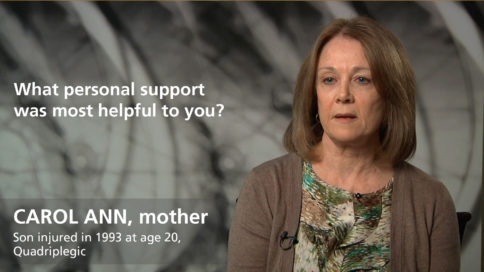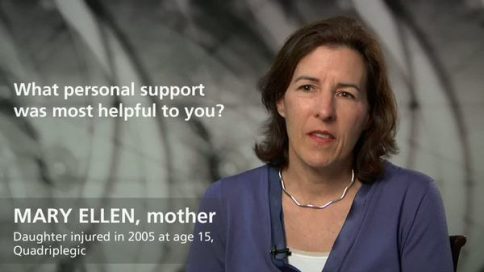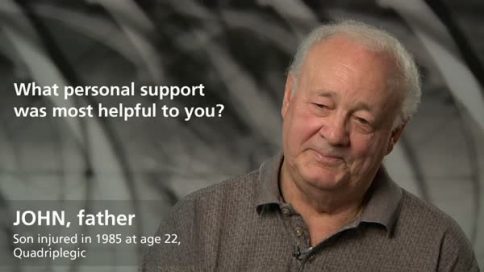What coping mechanism is most helpful immediately after a spinal cord injury? - Robin Dorman, PsyD
|
|
What coping mechanism is most helpful immediately after a spinal cord injury? |
|
Robin Dorman, PsyDClinical Health Psychologist, Northwestern University Medical Center, Chicago |
||
| Read Bio | More Videos by Robin Dorman | |
|
Share |
||
Transcript
Coping strategies at that point are very much about survival, it's very much about, kind of, getting through that day. At the very beginning, when everything is so unknown, and everything is so overwhelming, coping strategies are about getting through the day. You know, thinking about things, one by one, step by step, day by day sounds cliché, but there's a reason for that cliché, because sometimes two days sounds too much—you can't imagine two days. Sometimes you can't imagine a whole day, and getting through an hour is a helpful thing to do. And, that would be for the injured person, as well as the caregiver. There can be a real desire to think far in the future. "How is my life ever going to look like this?"—"How am I ever going to be able to function, or have a good day again, or enjoy anything again?" And, at times, that can be too much to ask, because it truly isn't something that can be envisioned. So, as hard as it is, and it certainly is, this is an easier-said-than-done kind of strategy, is trying to, kind of, put aside those huge, future questions, and say, "Let's get to the next step."
Show Less|
|
||
add
What coping mechanism is most helpful immediately after a spinal cord injury? |
||
Robin Dorman, PsyDClinical Health Psychologist, Northwestern University Medical Center, Chicago |
More Videos by Robin Dorman | |
| Transcriptadd | share | |
Coping strategies at that point are very much about survival, it's very much about, kind of, getting through that day. At the very beginning, when everything is so unknown, and everything is so overwhelming, coping strategies are about getting through the day. You know, thinking about things, one by one, step by step, day by day sounds cliché, but there's a reason for that cliché, because sometimes two days sounds too much—you can't imagine two days. Sometimes you can't imagine a whole day, and getting through an hour is a helpful thing to do. And, that would be for the injured person, as well as the caregiver. There can be a real desire to think far in the future. "How is my life ever going to look like this?"—"How am I ever going to be able to function, or have a good day again, or enjoy anything again?" And, at times, that can be too much to ask, because it truly isn't something that can be envisioned. So, as hard as it is, and it certainly is, this is an easier-said-than-done kind of strategy, is trying to, kind of, put aside those huge, future questions, and say, "Let's get to the next step."

